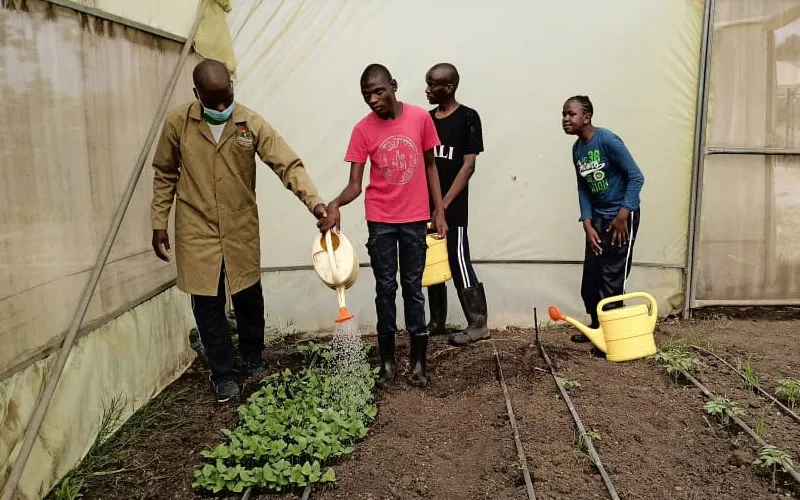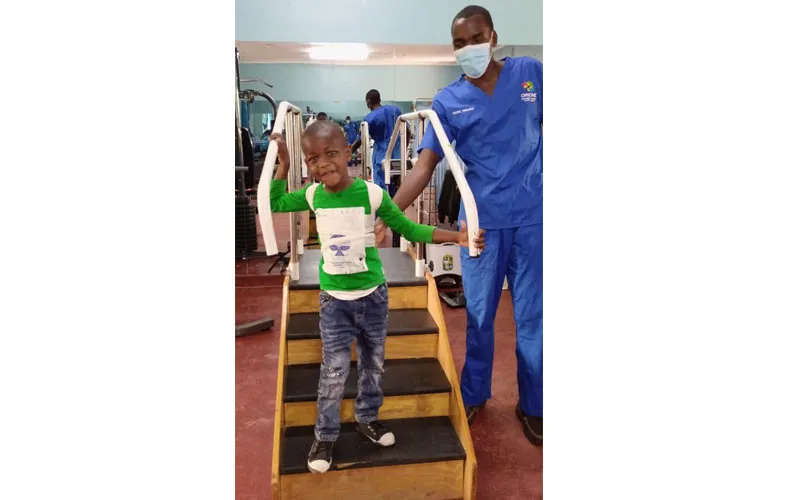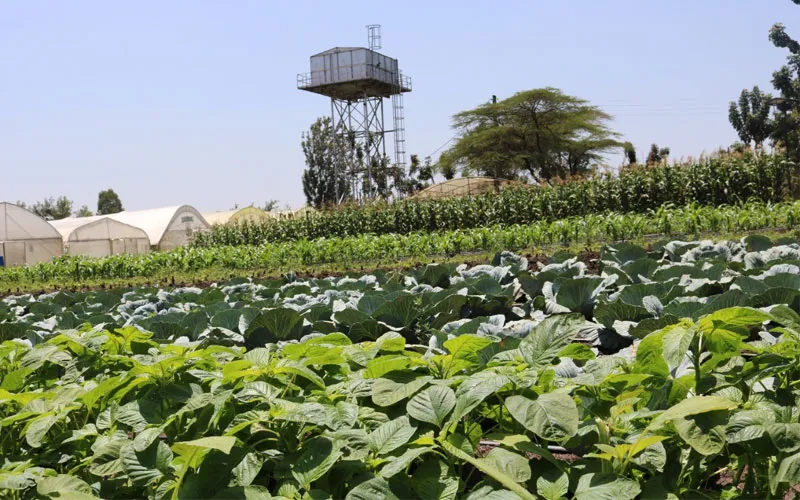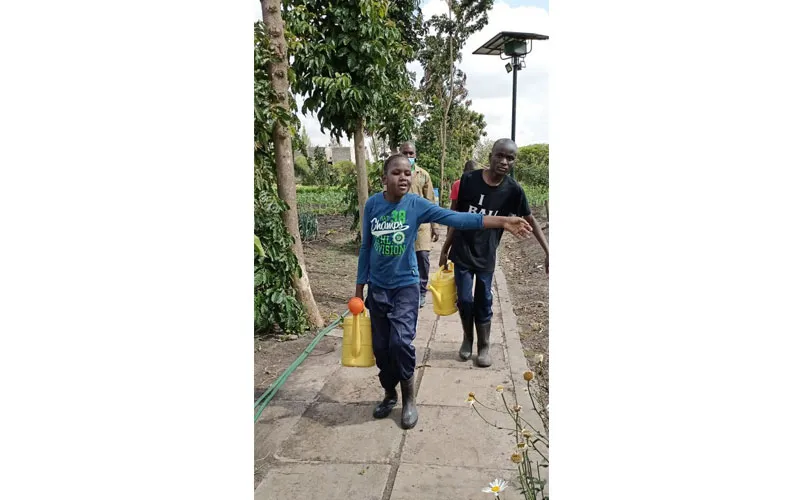Many other children and young people have gone through the centre that was started at the Kenyan Diocese in 2005. Today, the Orionine Fathers run a centre within the Holy Spirit Catholic Church, Kandisi, in the Diocese of Ngong that has 50 children and youth and at St. Peter Catholic Church, Kaburugi, in the Diocese of Murang’a with an enrollment of 35 children.

With a presence in over 33 countries, the Orionine Fathers strive to serve in line with their Founder’s charism to work with the most vulnerable in society. Mr. Manyara says that children and youth living with mental conditions form part of this group.
The Orionine Fathers noted the dire situation of children born with mental disability when they started the Catholic Parish in Kaburugi in the year 1998.
(Story continues below)
(Story continues below)
“The children who came to the Parish were enrolled in a feeding program. The Fathers also started a small vegetable garden to keep them engaged,” Mr. Manyara recalls, and adds, “Over the years their number started to increase and in the year 2005 we started with our first Centre after numerous home visits where we identified over 200 children in need of education and rehabilitation.”

According to the Project Manager, guardians of many children with intellectual disabilities did not know where to take their children and so, they preferred to keep their children confined at home without any intervention.
At the centre, children and youth with walking disabilities, spasticity and delayed developmental milestones like sitting undergo rehabilitation, which includes therapy sessions.
According to Mr. Manyara, some of those enrolled in the program improve to the point that they are able to participate to a greater extent in learning activities and day to day living activities.
The centre also provides occupational therapy for students lacking eye and motor coordination who Mr. Manyara says are unable to perform activities such as dressing and feeding.

Students with autism undergo sensory stimulation to help them with their hyperactivity and short concentration span.
“These students attend sensory integration sessions in our dark room outfitted with special materials like changing colors, toys, music, and touch stimulation objects. The different elements stimulate areas of their brain with damage. This stimulation has a positive impact on the performance of their daily activities as it helps them to calm down and improves their concentration and memory retention,” Mr. Manyara says.
The Project Manager says that about 80 percent of students admitted at the centre have verbal and non-verbal communication challenges, feeding and swallowing difficulty, while some of them have challenges in literacy skills.
He says that an assessment is done then diagnosis is made before a treatment plan is formulated for each student.
The students are also provided with a customized educational plan (IEP) to meet individual needs at the centre that is certified as a Basic Education Institution under Kenya’s Ministry of Education.
Vocational training at Orione Community Training is done at the centre’s four-acre farm where students are trained and empowered to venture into agribusiness.

Mr. Manyara says that the two-year training is given to those above 16 years old. He explains, “Once they are 18 years of age, we evaluate their ability to perform farming tasks and if they are able, we employ them to work as farmers in our farm. We prepare job contracts for them and open bank accounts into which their salary is paid.”
So far, 16 youth have graduated from the farming project and have started their own income generating projects including poultry, goat and vegetable farming in their respective communities.
To ensure that there is community involvement and inclusion, children in surrounding villages who attend regular school are invited at the centre to interact with the children living with disability.
During the COVID-19 pandemic, the centre distributed over 1,000 food packages to vulnerable families around the institution and also conducted a feeding program for over 400 needy children and 50 street families. The centre’s ongoing nutrition program has benefitted over 600 children at risk of malnourishment.

Additionally, the centre provided medical equipment and Personal Protective Equipment (PPE) to local health dispensaries in what Mr. Manyara says is an effort to involve the community in its programs.
The uniqueness of the centre, the official says, is its holistic approach in the promotion of the lives of children and youth living with mental conditions and syndromes.
In an array of achievements, the centre was in 2011 awarded Best Practice in the Protection of the Rights for People with Disabilities from the United Nations High Commission for Human Rights.

All the achievements notwithstanding, the centre grapples with a myriad of challenges, key among them insufficient funding of its projects.
“Many of our beneficiaries come from very poor family backgrounds and as such, we majorly look for sponsors to help us meet the cost of providing the services that they require,” Mr. Manyara tells ACI Africa, adding that the centre spends US$180.00 every month to provide education, feeding and rehabilitation services for each child.
“At the moment, we have a group of 30 children between the ages of 3 years and 14 years that are in need of sponsorship as they are confined at home without any form of intervention,” the Project Manager of the Orione Community Training Centre tells ACI Africa in the June 29 interview.
Agnes Aineah is a Kenyan journalist with a background in digital and newspaper reporting. She holds a Master of Arts in Digital Journalism from the Aga Khan University, Graduate School of Media and Communications and a Bachelor's Degree in Linguistics, Media and Communications from Kenya's Moi University. Agnes currently serves as a journalist for ACI Africa.

















